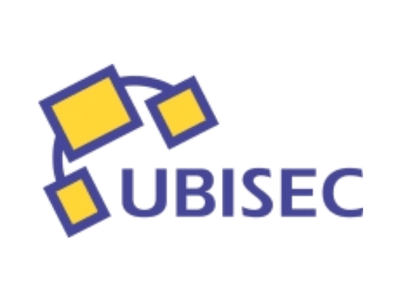UBISEC
Ubiquitous Networks with a Secure Provision of Services, Access, and Content Delivery
- Funded by the EU FP6 (FP6-2003-IST-1-506926)
- Duration: 01/01/2004 to 28/02/2006
- Funded by the EU FP6 (FP6-2003-IST-1-506926)
- Duration: 01/01/2004 to 28/02/2006
- http://websrv2.c-lab.de/ubisec/
UBISEC aims at an advanced infrastructure for large-scale mobility and security based on SmartCard technologies for context-aware and personalised authorisation and authentication services in heterogeneous networks. This requires advanced personalisation and localisation technologies with high security in order to keep privacy and to protect computing devices, their software components, and personal user data including user profiles. The project does not deal with the development of a complete framework, but focuses primarily on the following areas: Security, Customisation, Core technology and Service Discovery.

NICS also designed, implemented and tested a Mobile DRM framework with non-repudiation services in ubiquitous scenarios [2].
Security is a core issue in all designs.
References
- Antonio Muñoz and Jose A. Onieva and Javier Lopez (2005): On Secure Profiling. In: 1st International Workshop on Secure Ubiquitous Networks (SUN’05), pp. 214-218, IEEE Press IEEE Press, 2005.
- Jose A. Onieva and Jianying Zhou and Javier Lopez and Rodrigo Roman (2005): Extending an OMA-based DRM Framework with Non-Repudiation Services. In: 5th Symposium on Signal Processing and Information Technology (ISSPIT’05), pp. 472-477, IEEE IEEE, 2005.

